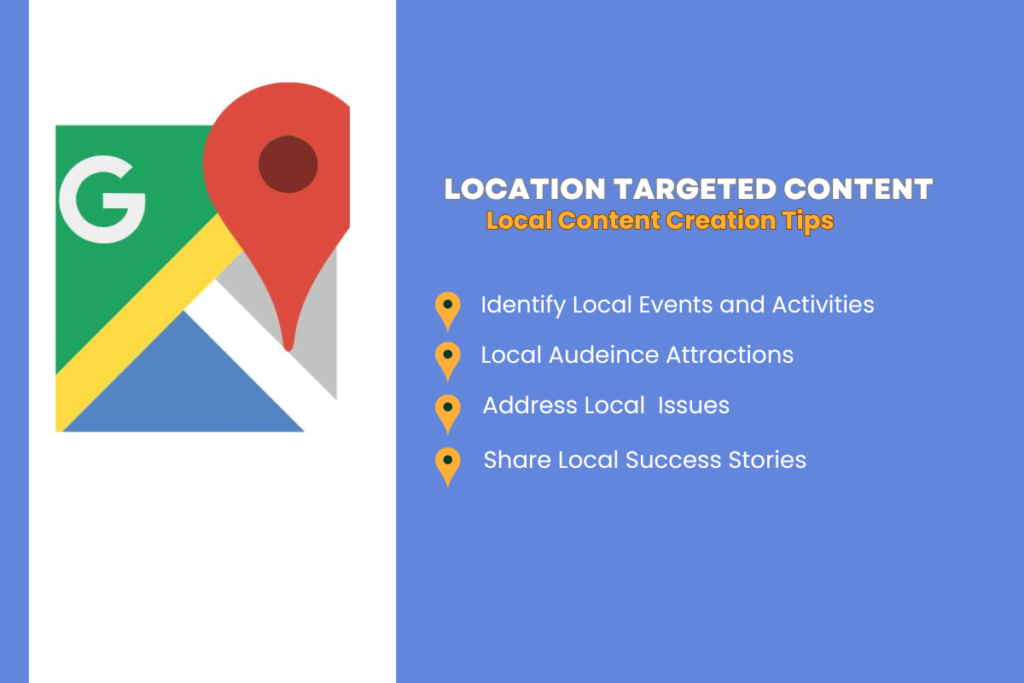Local SEO Tactics refer to the techniques for improving your business visibility in that particular area. Over time, there has been an increasing trend in the growth of local SEO potential, while the competition is also there.
If you are struggling to boost your website visibility, this guide is a great start for you to accomplish your long-term goals.
Table of contents
Local SEO Tactics: Hidden Secrets of Success
Before digging deep into the ocean, we must understand what is local SEO. It includes various practices for achieving higher rankings in local search. Marketers must know that accomplishing local rankings requires them to go Beyond Google.
Nowadays, users have many options to search for anything such as Google My Business, Bing Local Maps, and more.
Recently Apple has introduced its Business Connect allowing businesses to optimize their Apple map locations. Moreover, Google continues to dominate the market, for that reasons local businesses are striving to remain on top
Here are proven Local SEO Tactics to accomplish long term growth
Understanding Google My Business (GMB)
Google My Business is a powerful tool for local businesses to manage their online presence. Therefore, claiming and optimizing your GMB listing is crucial for improving your visibility. Make sure your listing is complete and accurate with up-to-date information about your business, including your address, phone number, website, and business hours.

Optimizing GMB Listing
Optimize your GMB listing by adding high-quality photos, a detailed business description, and relevant keywords. Encourage satisfied customers to leave positive reviews on your GMB listing, as reviews are a key ranking factor in local search results.
Local Keyword Research
Conduct keyword research to identify relevant local keywords that potential customers are using to find businesses like yours. Incorporate these keywords naturally into your website content, meta tags, and GMB listing to improve your chances of ranking higher in local search results.
| Step | Explanation |
| Identify Your Target Area | Determine the specific geographic location or locations you want to target. This could be a city, town, neighborhood, or even a specific radius around your business. |
| Brainstorm Seed Keywords | Generate a list of general keywords related to your business or industry. These will serve as the foundation for your local keyword research. |
| Use Keyword Research Tools | Utilize online tools such as Google Keyword Planner, SEMrush, or Ubersuggest to expand your list of keywords and identify local variations. |
| Analyze Competitor Keywords | Look at what keywords your competitors are using in their website content, meta tags, and Google My Business (GMB) listings. This can provide valuable insights. |
| Consider Local Intent | Think about the specific needs and preferences of local customers when refining your keyword list. Include terms like city names, neighborhoods, or regional landmarks. |
| Check Google Autocomplete | Type your seed keywords into Google search and observe the autocomplete suggestions for additional local keyword ideas. |
| Use Google Trends | Analyze Google Trends data to identify trending local keywords and phrases that are popular in your target area. |
| Review Local Forums | Browse local forums, community groups, or social media platforms to see what language and terminology locals use when discussing topics related to your business. |
| Incorporate Long-Tail Keywords | Include longer, more specific phrases that mimic natural language and are more likely to match the queries of local customers. |
| Update Website Content | Integrate the identified local keywords naturally into your website content, ensuring it reads well and provides value to visitors. |
On-page Optimization for Local SEO

Optimize your website’s on-page elements, including title tags, meta descriptions, and headings, with local keywords. Make sure your website is mobile-friendly and loads quickly, as these factors also influence your local search rankings.
Creating Location-specific Content
Create content that is tailored to your local audience, such as blog posts, articles, and landing pages that address local topics and interests. This will not only attract local visitors to your website but also help establish your business as a trusted authority in your community.

Identify Local Events and Activities:
- Highlight upcoming events, festivals, or community gatherings in your area.
- Provide insights, tips, or recommendations related to these events to engage local audiences.
Feature Local Businesses and Attractions:
- Showcase nearby businesses, attractions, and landmarks.
- Write reviews, features, or guides that promote local establishments, fostering a sense of community support.
Address Local Concerns and Issues:
- Discuss topics relevant to your community, such as local policies, developments, or challenges.
- Offer solutions, insights, or discussions that resonate with local residents.
Share Local Success Stories:
- Spotlight individuals or organizations in your area making a positive impact.
- Share inspiring stories or achievements that connect with the values and aspirations of your community.
Building Local Citations

Build local citations by listing your business on online directories, review sites, and local business listings. Ensure that your NAP (Name, Address, Phone Number) information is consistent across all citations to avoid confusing search engines and potential customers.
Conclusion
Implementing these tactics can significantly improve your local SEO and increase your visibility in your area. By understanding and optimizing your GMB listing, conducting local keyword research, optimizing your website for local search, creating location-specific content, and building local citations, you can attract more local customers and grow your business.
Read About: What are Local SEO Services and Strategies
FAQs
While it depends on various factors such as competition and the effectiveness of your strategies, you may start seeing improvements in your local search rankings within a few weeks to a few months.
While hiring a professional can streamline the process and ensure optimal results, many businesses can achieve success with local SEO by following best practices and staying consistent with their efforts.
Yes, even businesses without a physical storefront can benefit from local SEO by targeting their service areas and optimizing their online presence to attract local customers.
Online reviews play a crucial role in local SEO, as they not only influence your rankings in local search results but also impact consumers’ purchasing decisions.
If your business has multiple locations, it’s essential to create separate GMB listings for each location and tailor your local SEO efforts to target each specific area.


